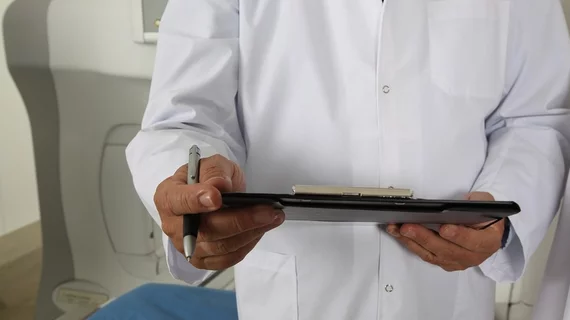Nearly half of ER doctors experience assault on the job
Almost half—47 percent—of emergency physicians report having been physically assaulted while at work, according to a new poll.
Among those who were assaulted, 60 percent said those assaults occurred in the past year. The poll, which surveyed 3,500 emergency physicians across the country, was conducted by Marketing General Incorporated and was released at the annual meeting of the American College of Emergency Physicians, ACEP/18 Scientific Assembly.
The results reveal that violence in emergency rooms is increasing—and it’s having an impact on patient care.
Nearly 8 in 10 physicians also said patient care is being affected, and 51 percent said patients had also been physically harmed.
"More needs to be done," Vidor Friedman, MD, president of ACEP, said in a statement. "Violence in emergency departments is not only affecting medical staff, it is affecting patients. When violence occurs in an emergency department, patients can be injured or traumatized to the point of leaving without being seen. It also can increase wait times and distract emergency staff from focusing on other patients who urgently require a physician's assistance."
The high prevalence of healthcare workplace violence has led some policymakers to introduce workplace safety legislation specifically for healthcare settings.
Almost 7 in 10 physicians said violence has increased in the last five years, with 25 percent reporting it has increased greatly. Nearly half of all respondents said hospitals can improve violence by adding security guards, cameras, parking lot security, metal detectors and increasing visitor screening inside hospitals.
Nearly all (96 percent) women who were emergency physicians reported a patient or visitor made inappropriate comments or unwanted advances toward them, while 80 percent of men said the same. Half of emergency physicians said at least half of all assaults are committed by people seeking drugs or who were under the influence of drugs or alcohol.
"Emergency physicians across all demographics experience various forms of violence and are increasingly concerned about becoming a victim of violence," Terry Kowalenko, MD, an emergency physician in Michigan and coauthor of the study, said in a statement. "Despite increased risks, our research found that there is very little published on topics such as situational awareness, verbal de-escalation, self-protection techniques or weapons awareness for emergency physicians to use."

